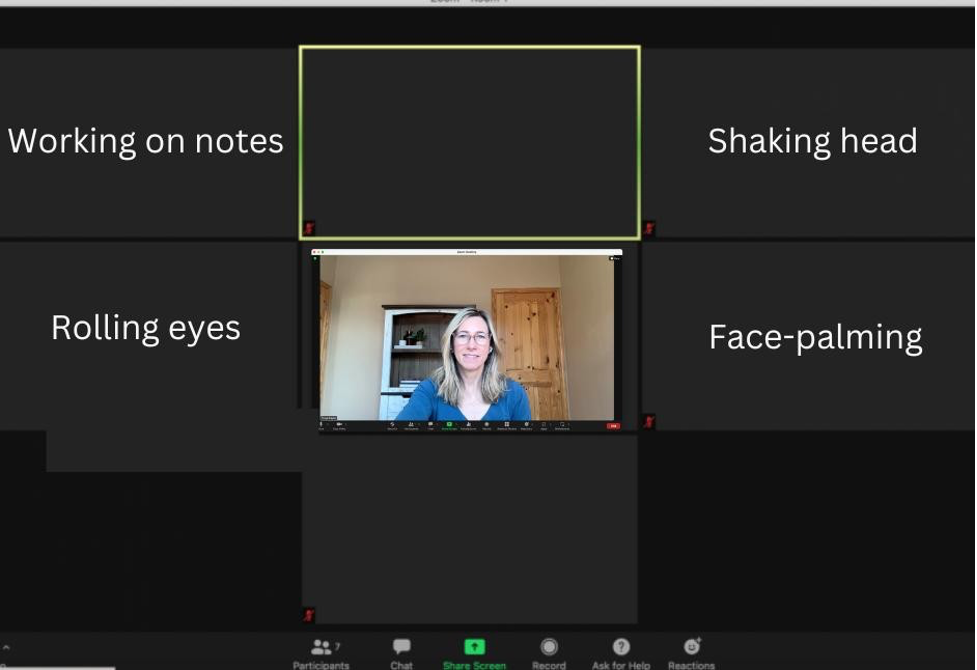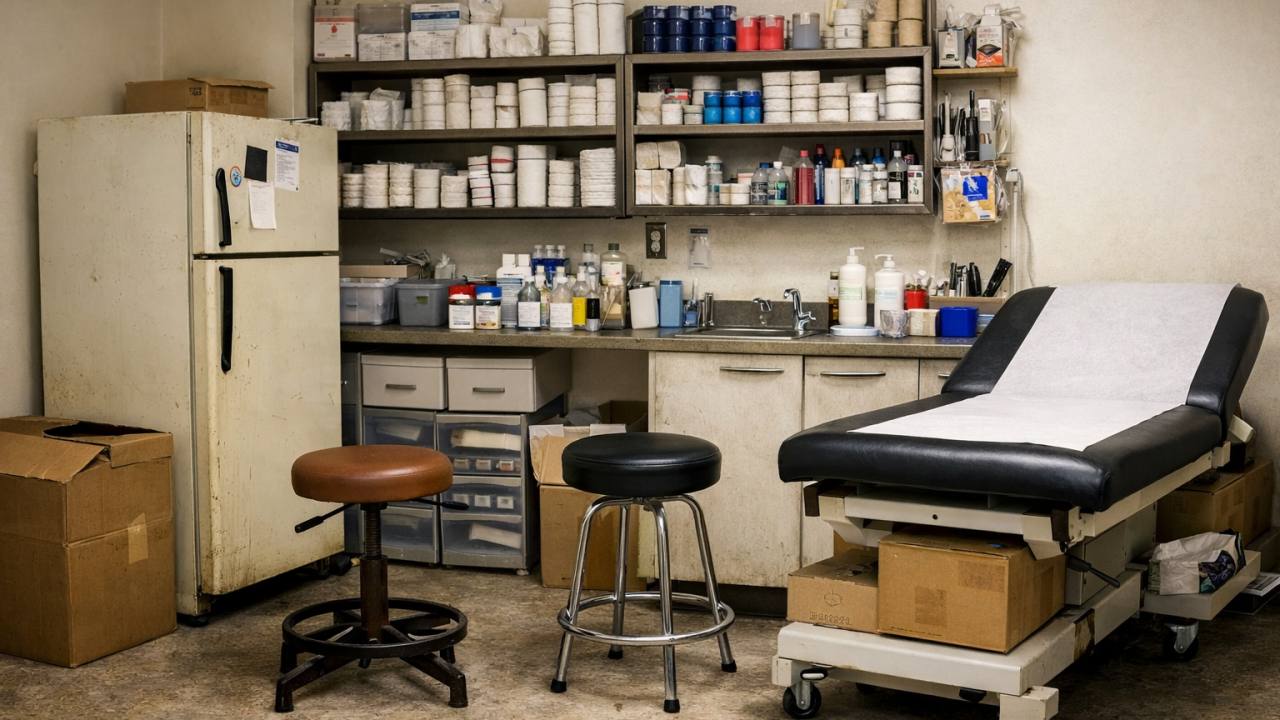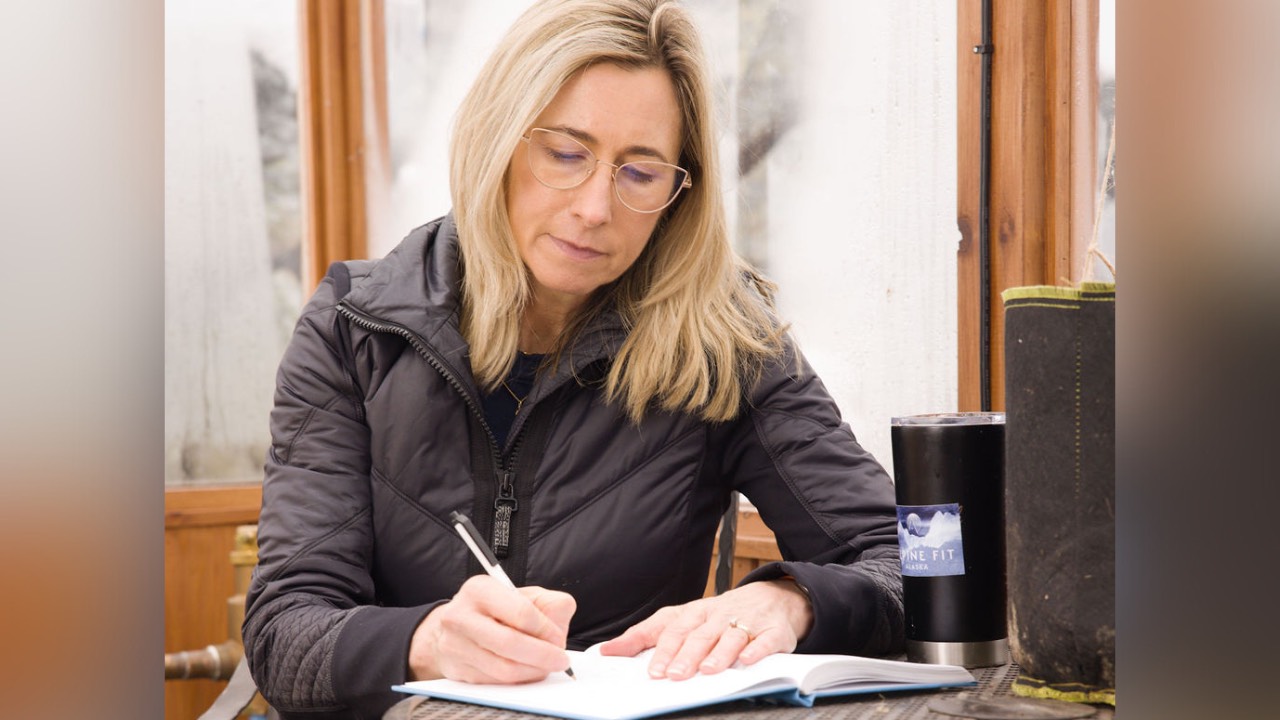Worst Case, Story and Reflection
Early on, as a new physician coach, one of my first group sessions was in a Zoom breakout room with residents during their grand rounds. The main room topic, presented by another physician coach, a surgeon, was Unhealthy Perfectionism, briefly mentioning how our thoughts affect our emotions and actions. We then went to breakout rooms.
Slowly, my Zoom room populated with 4 residents, all with cameras off, despite the request from the attending in charge of grand rounds. I started with intros and a journal prompt. Silence. I filled the silence a little more. Paused. One person gave a very short answer. Then another begrudgingly. Then more silence.
I sensed their dread, imagined how busy their days were, and how 'soft' and useless this activity likely seemed to them. I pictured them rolling their eyes, giving side glances to people in their vicinity, and working on other, more important tasks.
I wanted to let them off the hook and stop the agony by ending the meeting. It was awkward and uncomfortable. I asked a couple of more questions that were met with more silence from faceless boxes. I gave a couple of examples from my life and previous coachees. When finally the countdown began to rescue us back to the main room, one came off mute and I heard them say...

"Thank you, this was very helpful." And then another came on camera and expressed that they had never thought through things like this and they found it particularly helpful.
This was a powerful lesson for me.. and for all of us. It demonstrated a couple of things:
1. Important questions and protected silence to reflect are impactful for busy physicians.
2. My assumptions of what was going on behind those blank squares made my initial experience miserable.
What about you?
- When do you give yourself silence to reflect?
- Do you see a parallel about how assuming the worst makes encounters worse than they have to be?
When being coached, physicians often discover thoughts and emotions projected onto others or even inanimate objects. The in-basket is a common one. Many aren't cognizant that they assume messages represent angry or disappointed people, monumental asks, or evidence of their utter ineffectiveness. When that's the case, it makes total sense to procrastinate and avoid such things.
You can't actually mind (in-box) read. You might as well assume the best. What would happen if you extended positive intent? Such as your team and patients appreciate you and value your guidance. No matter your answers, they will believe you're doing your best. Would it be easier to open the in-basket?
For me, now, when cameras are off, I choose to believe the best. I know the value of the opportunity I'm extending. Some will gain helpful insights. I enjoy the interaction and the silence. (And, if there are any eye-rollers, I mentally gift them grace to be entitled to their own opinion and appreciate them anyway.)





Responses